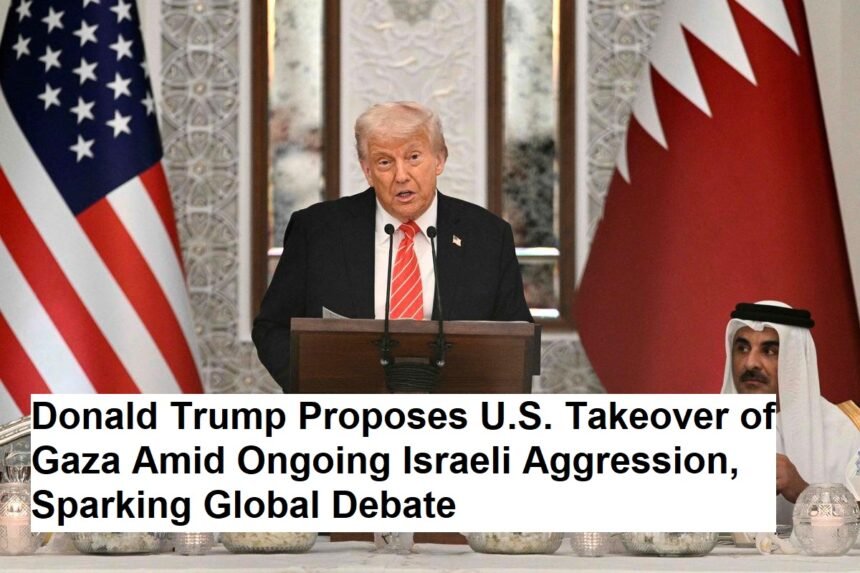On Thursday, May 15, 2025, during a high-profile business forum held in Qatar, former U.S. President Donald Trump made a startling declaration expressing his desire for the United States to take control of the Gaza Strip. This proposal comes amid the ongoing brutal Israeli military aggression against Gaza, which has persisted since October 2023, resulting in widespread devastation and a severe humanitarian crisis. Trump’s statement has ignited intense discussions and controversy across international political and diplomatic circles.
The Gaza Strip, a densely populated Palestinian territory, has been a focal point of conflict for decades. Since October 2023, the region has experienced escalated violence due to Israeli military operations aimed at countering militant groups. These operations have led to significant civilian casualties, destruction of infrastructure, and displacement of thousands of residents. The humanitarian situation remains dire, with limited access to essential services and international aid.
Trump’s proposal to assume control over Gaza was made during his speech at the Qatar business forum, where he outlined his vision for stabilizing the region. He argued that U.S. governance could bring order, security, and economic development to Gaza, which has been plagued by conflict and political instability. According to Trump, American administration could serve as a neutral force to mediate between conflicting parties and facilitate reconstruction efforts.
However, the suggestion to take over Gaza has been met with widespread skepticism and criticism. Many experts and international leaders view the proposal as unrealistic and potentially exacerbating tensions in an already volatile region. The idea of a foreign power assuming control over a contested territory raises complex legal, ethical, and political questions, particularly regarding sovereignty, self-determination, and international law.
Palestinian leaders and representatives have strongly rejected the notion, emphasizing their right to self-governance and condemning any external attempts to undermine their autonomy. The proposal has been perceived as dismissive of Palestinian aspirations and the broader quest for a just and lasting peace based on mutual recognition and respect.
The international community’s response has been mixed but largely cautious. Some countries have called for renewed diplomatic efforts to end the violence and address the root causes of the conflict, while others have expressed concern that unilateral actions or proposals could derail ongoing peace initiatives. The United Nations and various humanitarian organizations have reiterated the urgent need for ceasefire, protection of civilians, and unhindered humanitarian access.
Trump’s statement also reflects the complex dynamics of U.S. involvement in the Middle East. Historically, the United States has played a significant role as a mediator in the Israeli-Palestinian conflict, often supporting Israel’s security while advocating for a two-state solution. The proposal to take direct control of Gaza marks a departure from traditional diplomatic approaches and signals a more interventionist stance, which could have far-reaching implications for U.S. relations in the region.
Critics argue that such a move could inflame anti-American sentiments, provoke resistance from local populations, and complicate relations with key regional partners. Supporters, however, contend that bold actions may be necessary to break the cycle of violence and foster stability, though they acknowledge the immense challenges involved.
The business forum in Qatar, where Trump made his remarks, was attended by influential political and economic figures from across the Middle East and beyond. The forum itself aims to promote regional cooperation, investment, and development, making the timing of Trump’s proposal particularly significant in the context of broader efforts to rebuild and revitalize the region.
In conclusion, Donald Trump’s announcement of his desire to take over the Gaza Strip during the Qatar business forum on May 15, 2025, has sparked a complex and heated debate. While framed as a potential solution to ongoing violence and instability, the proposal raises profound questions about sovereignty, international law, and the future of the Israeli-Palestinian conflict. As the world watches closely, the path forward remains uncertain, underscoring the urgent need for inclusive dialogue, respect for human rights, and sustainable peacebuilding efforts









